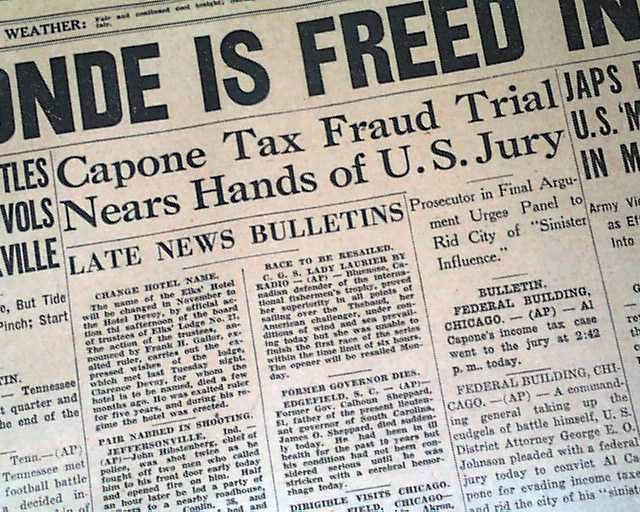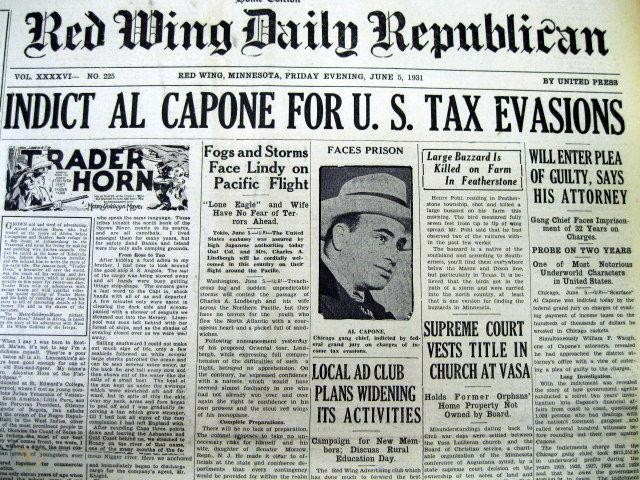Capone was convicted for tax fraud but not murder
Despite commanding a criminal empire and ordering assassinations on a slew of his adversaries, Al Capone avoided prosecution for years by bribing police and public officials and threatening witnesses. The mob boss received his first criminal conviction in May 1929, when he was arrested for carrying a concealed weapon in Philadelphia (he was on his way back to Chicago from an organized-crime summit in Atlantic City, New Jersey) and sentenced to a year in prison. He was released in March 1930, and a month later the Chicago Crime Commission issued its first-ever list of the city's worst criminals, with Capone ranked first.
Meanwhile, on President Herbert Hoover's orders, the federal government built a case against Capone for income-tax evasion, and he was indicted on tax evasion charges in June 1931. Capone agreed to a plea deal that included a two-and-a-half-year prison sentence; however, the judge in the case refused to accept the deal. Capone rescinded his guilty plea, and the case proceeded to trial. After learning that bribes had been offered to seat a Capone-friendly jury, the judge changed the pool of prospective jurors at the start of the highly publicized proceedings. In October 1931, an all-male jury (Illinois did not allow female jurors until 1939) found the gangster guilty of five of the more than 20 counts against him (three felonies and two misdemeanors). He was sentenced to 11 years in prison and fined $50,000, the harshest sentence ever handed down for tax evasion at the time.











